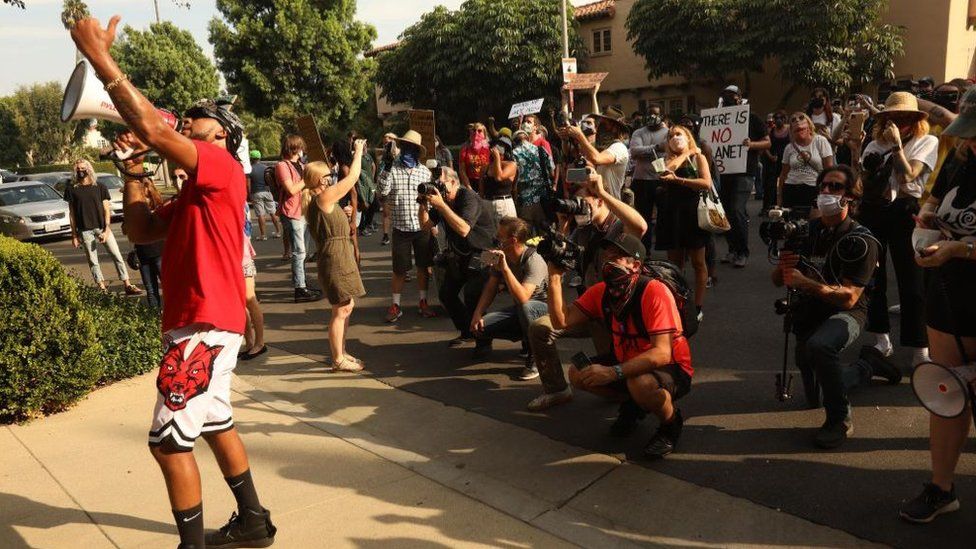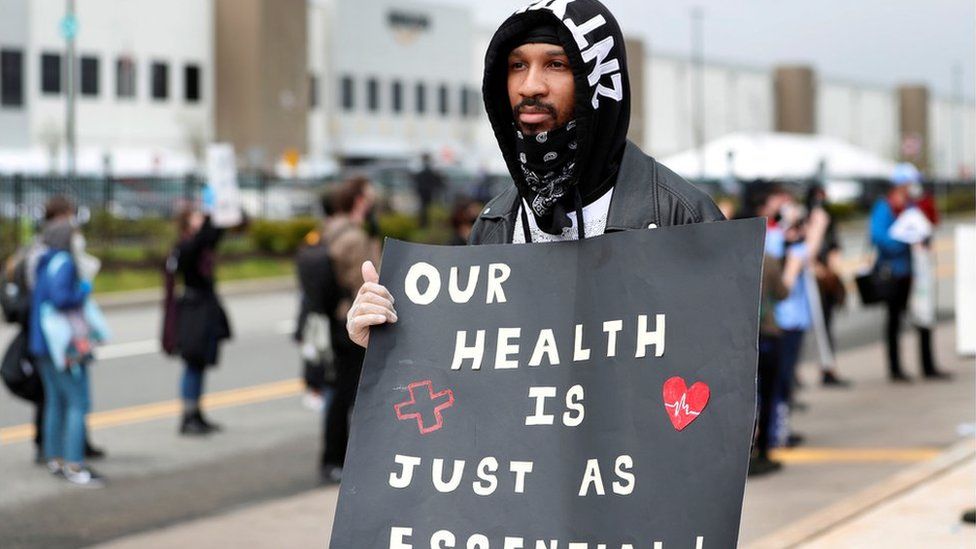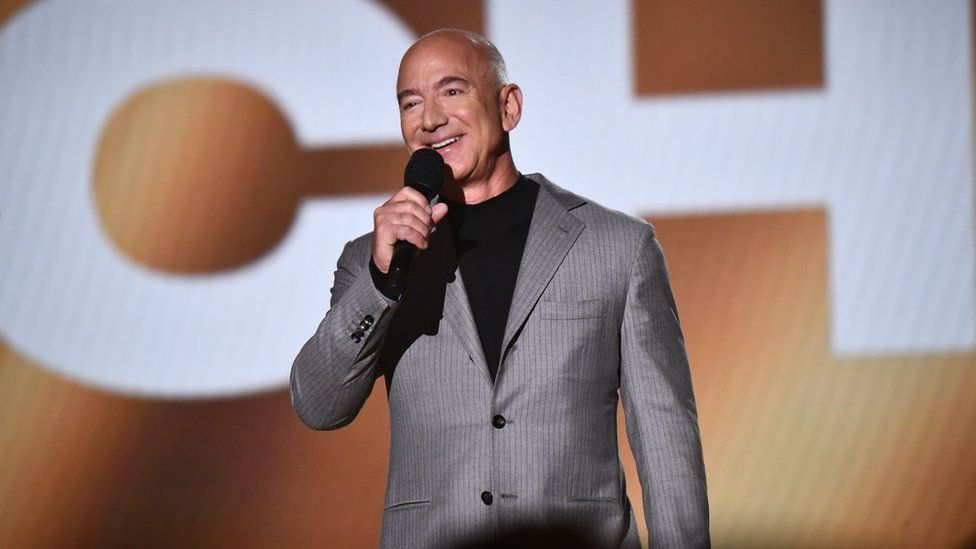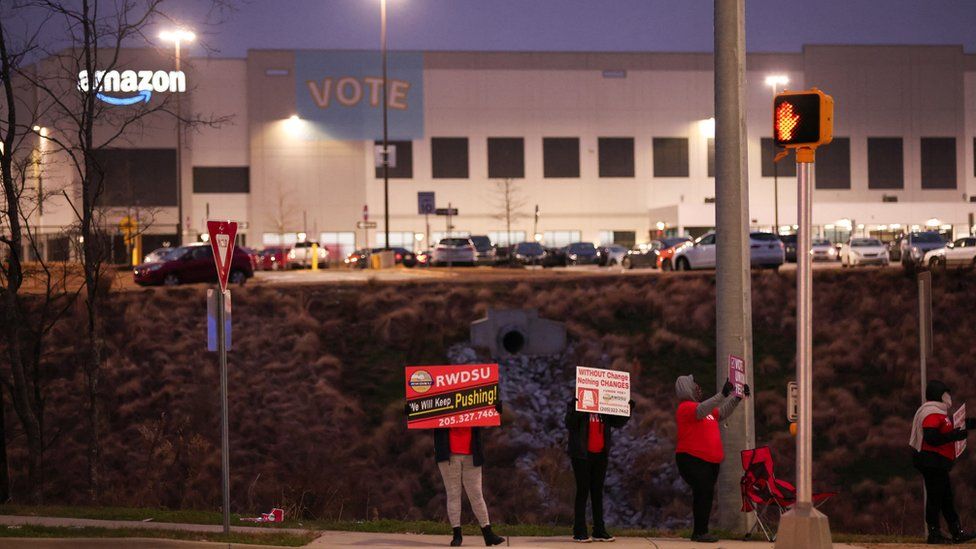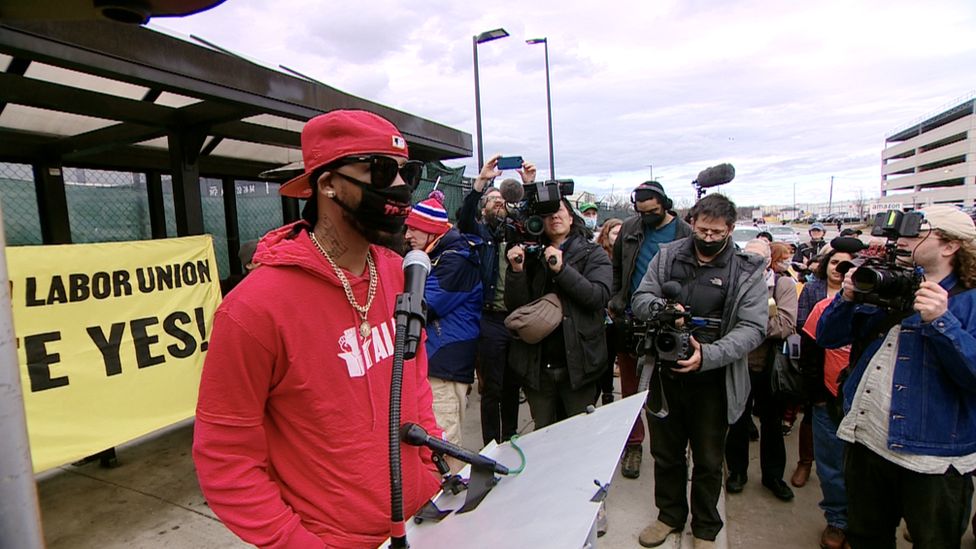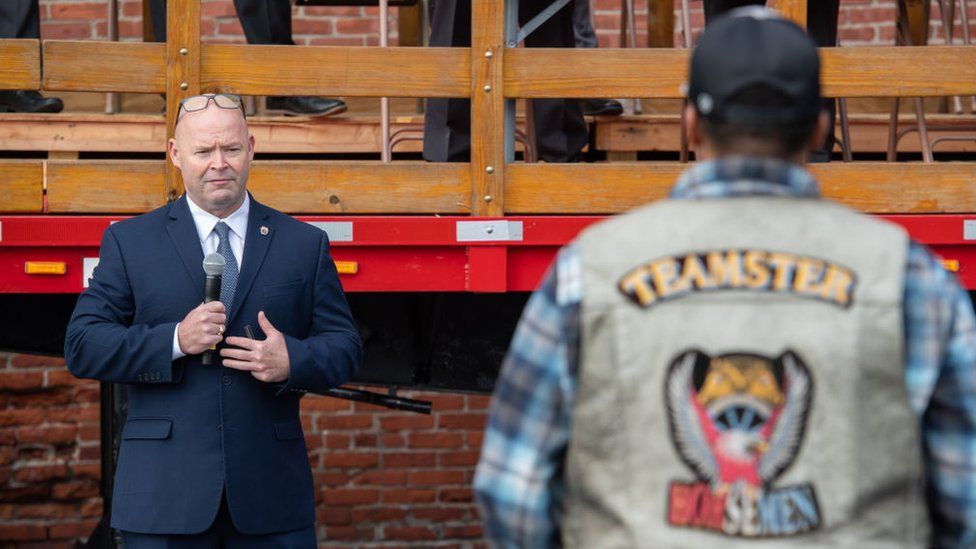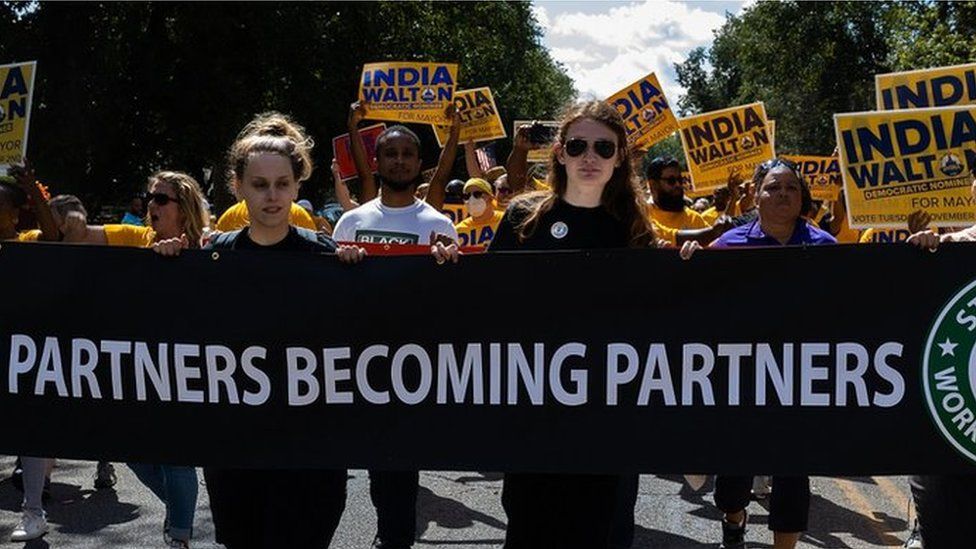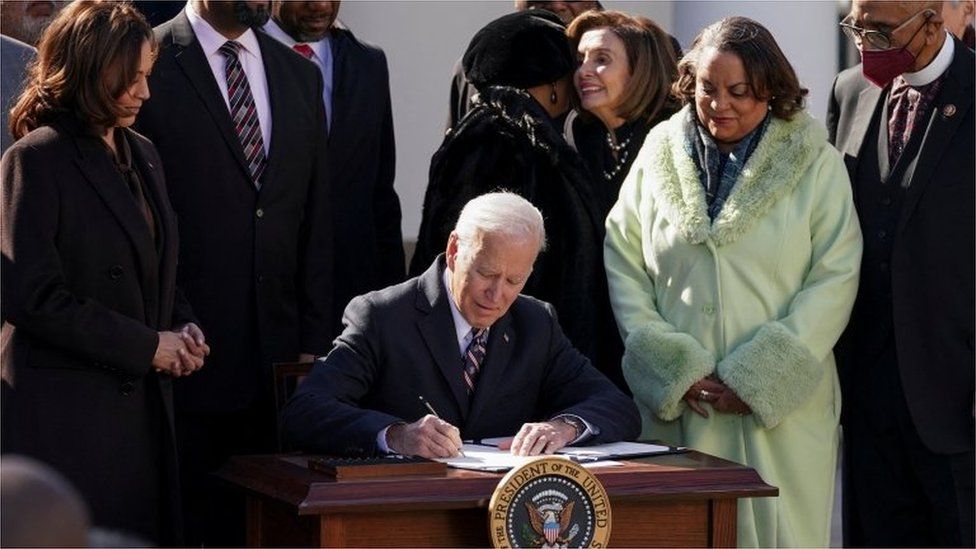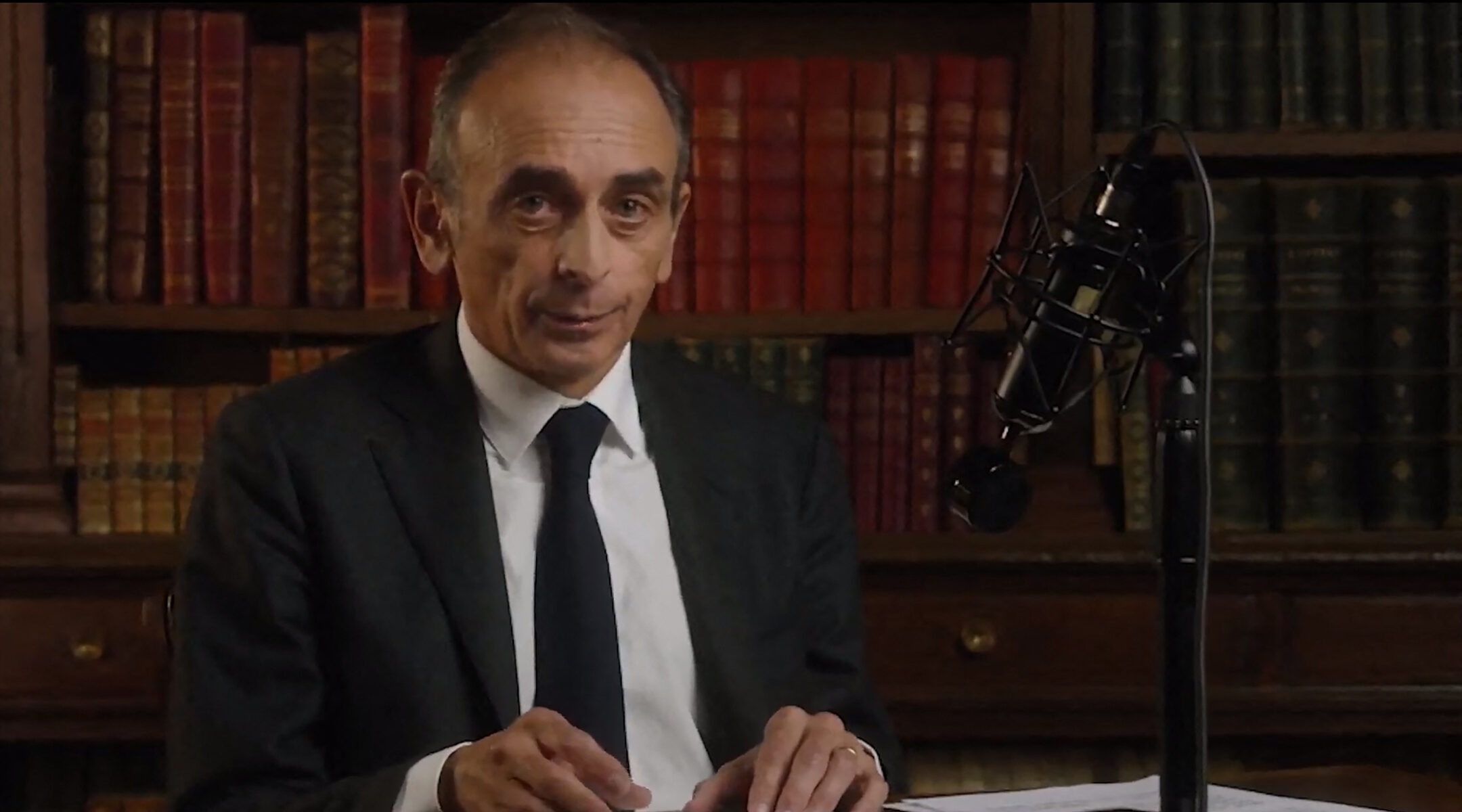Landmark group votes to base compensation plan on lineage rather than race after day of debate
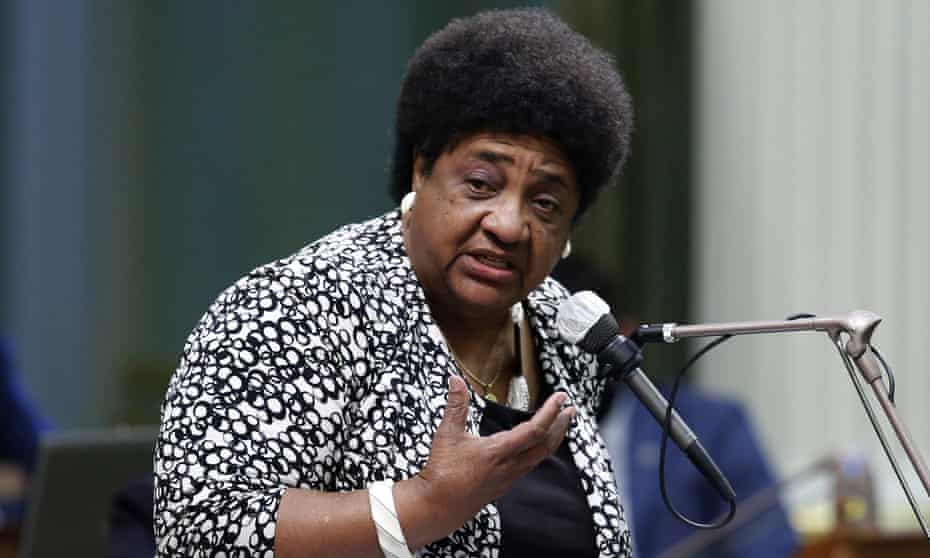
Guardian staff and agencies
Wed 30 Mar 2022
California’s first-in-the-nation taskforce on reparations for African Americans has voted to direct state compensation to the descendants of enslaved and free Black people who were in the US in the 19th century.
The group said that a compensation and restitution plan based on lineage – as opposed to one based on race, which would have opened the possibility of reparations to a broader group – had the best change of surviving a legal challenge. They also said that Black immigrants who had chosen to migrate to the US in the 20th and 21st centuries did not share the trauma of people who had been kidnapped and enslaved.
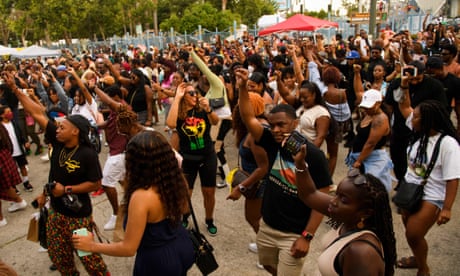
‘If not us, then who?’: inside the landmark push for reparations for Black Californians
They also opened eligibility to free Black people who migrated to the country in the 19th century, given possible difficulties in documenting genealogy and the risk at the time of becoming enslaved.
The decision passed by a vote of 5-4 on Tuesday evening following a day of lively debate. Others on the committee had argued that reparations should include all Black people, regardless of lineage, who suffer from systemic racism in housing, education and employment. They also said it was difficult to prove lineage and that enslavers often shipped people to work in various plantations in and outside the country.
The two-year reparations taskforce was created in 2020, making California the only state to move ahead with a study and plan, with a mission to study the institution of slavery and its harms and to educate the public about its findings.
The committee is not even a year into its two-year process and there is no compensation plan on the table.
Longtime advocates have spoken of the need for multifaceted remedies for related yet separate harms, such as slavery, Jim Crow laws, mass incarceration and redevelopment that resulted in displacement of Black communities.
Compensation could include free college, assistance buying homes and launching businesses, and grants to churches and community organizations, advocates say.
Yet the eligibility question has dogged the taskforce since its inaugural meeting in June, when viewers called in pleading with the nine-member group to devise targeted proposals and cash payments to make whole the descendants of enslaved people in the US.
The committee’s work has been informed by numerous testimonies. Arthur Ward, a Chicago resident, called in to Tuesday’s virtual meeting, saying that he was a descendant of enslaved people and had family in California. He supported reparations based only on lineage and expressed frustration with the panel’s concerns over Black immigrants who experience systemic racism.
“When it comes to some sort of justice, some kind of recompense, we are supposed to step to the back of the line and allow Caribbeans and Africans to be prioritized,” Ward said. “Taking this long to decide something that should not even be a question in the first place is an insult.”
Kamilah Moore, the committee’s chair, favored eligibility based on lineage, rather than race, saying it would have the best chance of surviving a legal challenge in a conservative US Supreme Court.
Shirley Weber, the California secretary of state who authored the legislation creating the taskforce, had argued passionately in January for prioritizing descendants for generations of forced labor, broken family ties and police terrorism. The daughter of sharecroppers forced to flee Arkansas in the dead of night, she recalled how the legacy of slavery had broken her family and stunted their ability to dream of anything beyond survival.
Opening up compensation to modern Black immigrants or even descendants of enslaved people from other countries would leave US descendants with mere pennies, she said.
But taskforce members, nearly all of whom can trace their families back to enslaved ancestors, have struggled with a pivotal question that is bound to shape reparations deliberations across the country. The panel needed to make a decision so economists can begin calculations.
Critics say that California has no obligation to pay up given that the state did not practice slavery and did not enforce Jim Crow laws that segregated Black people from white people in the southern states.
But testimony provided to the committee shows California and local governments were complicit in stripping Black people of their wages and property, preventing them from building wealth to pass down to their children. Their homes were razed for redevelopment, and they were forced to live in predominantly minority neighborhoods and couldn’t get bank loans that would allow them to purchase property.
Today, Black residents are 5% of the state’s population but over-represented in jails, prisons and unhoused populations. And Black homeowners continue to face discrimination in the form of home appraisals that are significantly lower than they would be if the house were in a white neighborhood or the homeowners are white, according to testimony.
Nkechi Taifa, director of the Reparation Education Project, is among longtime advocates who are thrilled the discussion has gone mainstream. But she’s baffled by the idea of limiting reparations to people who can show lineage when ancestry is not easy to document and enslavers frequently moved people among plantations in the US, the Caribbean and South America.
“I guess I tend to be more inclusive rather than exclusive,” she said, “and maybe it’s a fear of limitation, that there’s not enough money to go around.”
A report is due by June with a reparations proposal due by July 2023 for the Legislature to consider turning into law.
